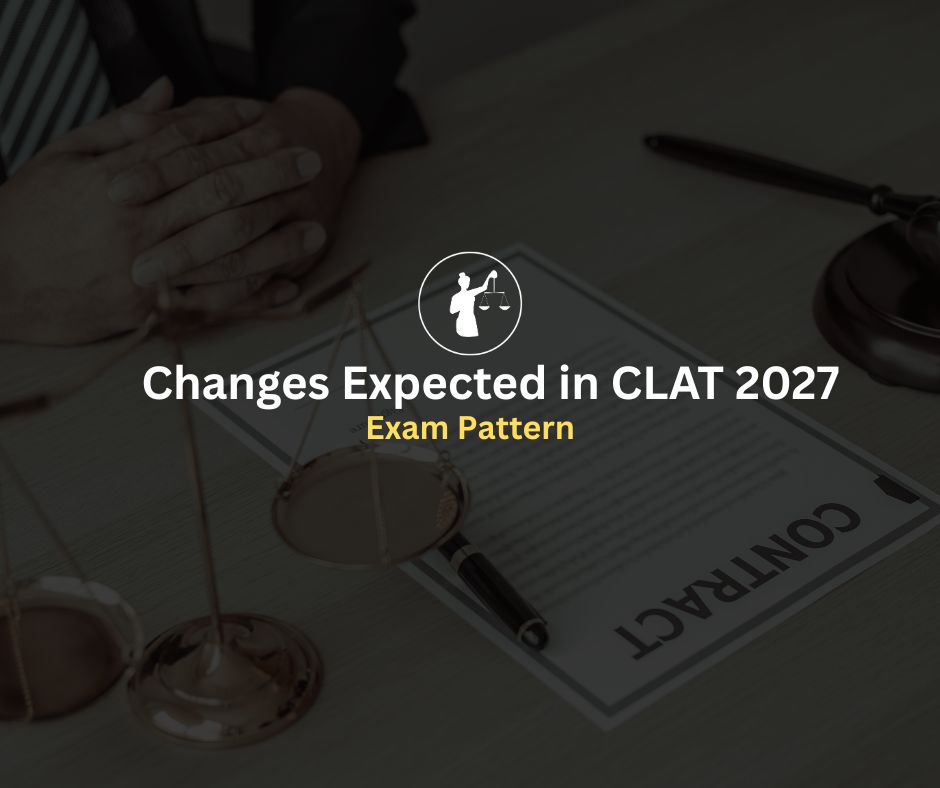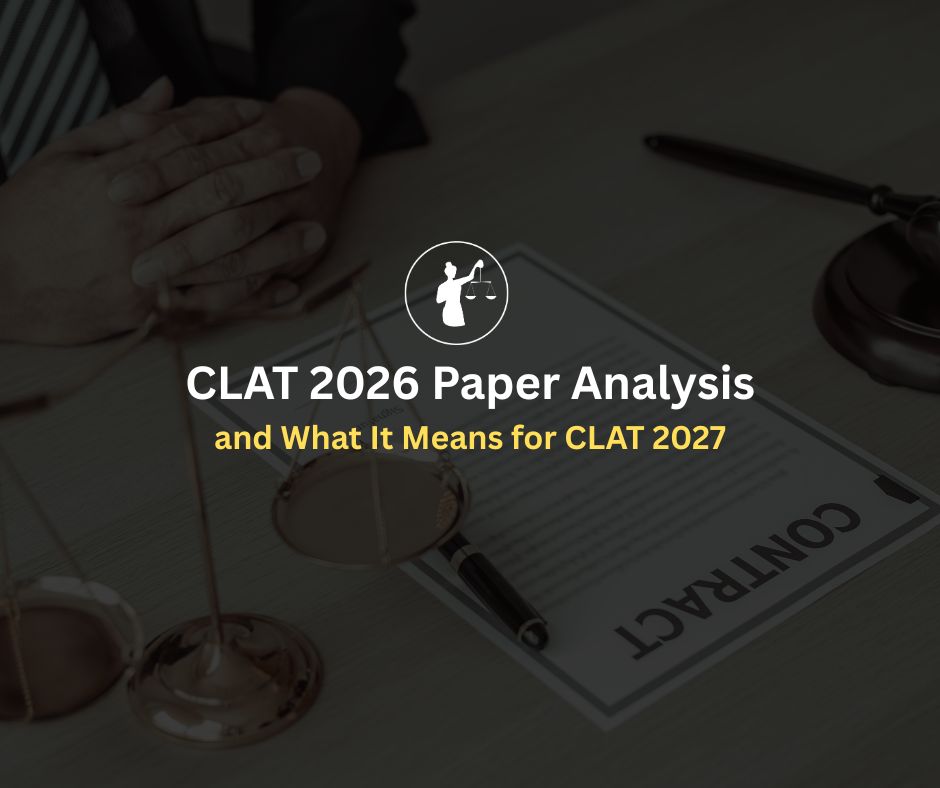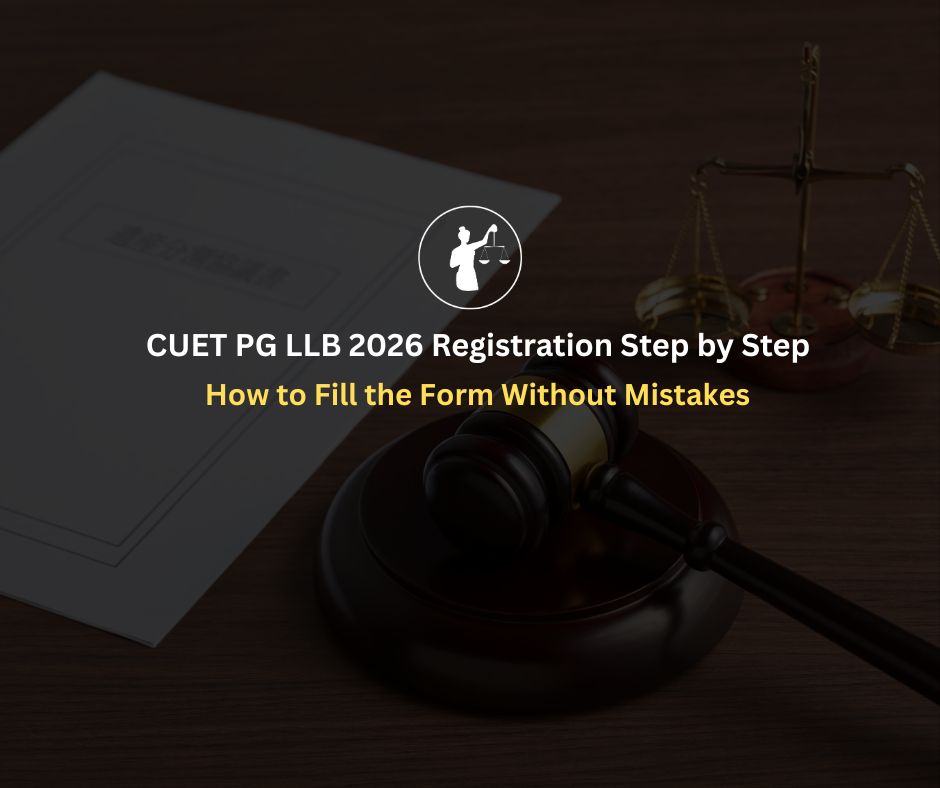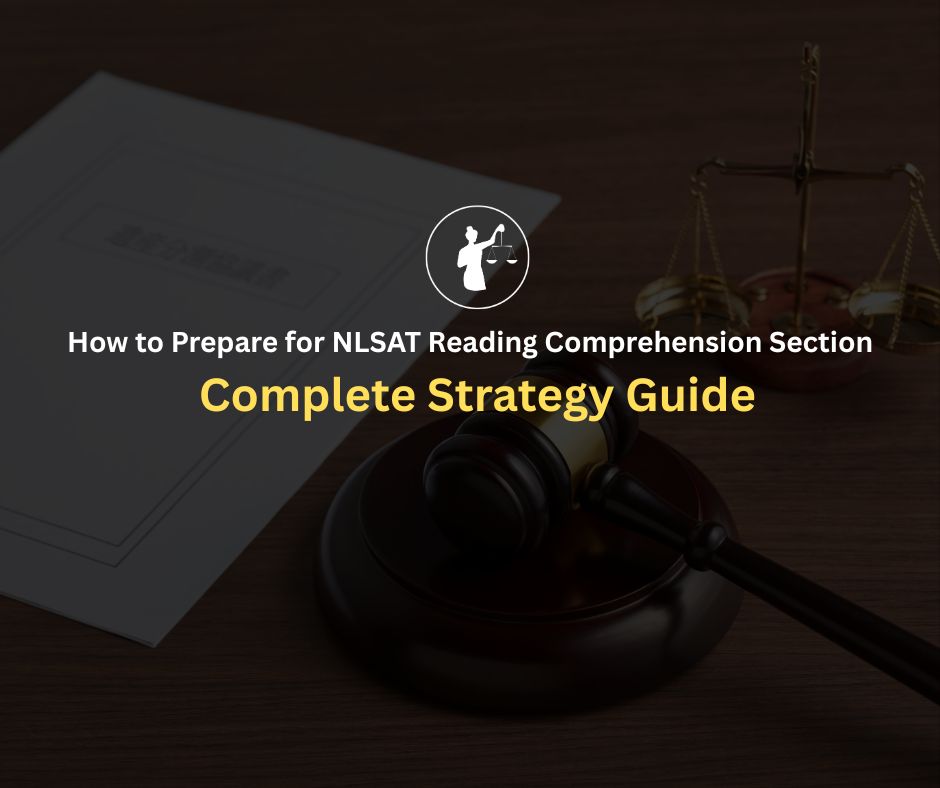Cracking the CLAT 2026 (Common Law Admission Test) is a dream for many law aspirants aiming to secure a spot in prestigious NLUs. However, with increasing competition and evolving exam patterns, preparing strategically becomes crucial.
( Note: Scroll Down and fill up the form for Free Mock Questions and Weekly Study Guides )
To help you ace the exam, we’ve compiled 10 expert-recommended tips to boost your preparation:
Signup to NLTI for free Mockups, past papers and much more
Before diving into preparation, it's essential to have a clear understanding of the CLAT 2026 exam pattern and syllabus. Knowing what to expect will help you create an effective study plan and focus on areas that matter most.
The CLAT 2026 exam will be a two-hour test conducted in an offline (pen-and-paper) mode. The paper primarily includes comprehension-based questions aimed at testing your reading, reasoning, and analytical abilities. Here's a breakdown of the sections:
English Language:
Comprehension passages followed by multiple-choice questions.
Questions test your understanding of vocabulary, grammar, inference-making, and critical analysis of passages.
Legal Reasoning:
Hypothetical scenarios with legal principles to be applied.
Tests your ability to identify relevant facts, apply principles, and derive logical conclusions.
No prior legal knowledge is required, but familiarity with legal terms and concepts helps.
Logical Reasoning:
Passages followed by reasoning-based questions.
Involves argument identification, pattern recognition, assumptions, conclusions, and logical coherence.
General Knowledge & Current Affairs:
Focuses on current events, historical events of significance, national and international affairs, and legal developments.
Primarily covers the last 10–12 months leading up to the exam.
Quantitative Techniques:
Basic mathematics topics up to Class 10 level, including percentages, ratios, time & work, averages, profit & loss, etc.
Questions are usually passage-based with data interpretation.
Weightage of Sections (Approximation):
Familiarize yourself with each section’s pattern and syllabus.
Focus on high-weightage sections like Legal Reasoning and General Knowledge.
Accuracy is critical as CLAT 2026 follows negative marking (-0.25 for each wrong answer).
The comprehension-based format requires strong reading skills and logical analysis.
Creating a well-structured study plan is crucial for cracking CLAT 2026. A customized plan ensures you cover all sections effectively while allowing room for revision and improvement. Here's how you can craft a study schedule that works for you:
Also Read: CLAT Syllabus 2026: Subject-Wise Breakdown & Important Tips
CLAT 2026 requires proficiency across five distinct sections. Each section demands a different preparation approach.
A structured plan helps you balance your preparation, focus on weaker areas, and track your progress.
Consistency is key—having a plan helps you stay disciplined and organized.
Reading skills are essential for English, Logical Reasoning, and Current Affairs. Improving your reading speed and comprehension will benefit you across sections.
What to Read:
Newspapers: The Hindu, The Indian Express (Focus on Editorials, Legal News, National & International Affairs).
Legal Articles & Blogs: From reliable sources like Bar & Bench, LiveLaw.
Monthly Current Affairs Compilations: For quick revision.
Why It Matters:
Enhances comprehension skills for passage-based questions.
Keeps you updated with legal and national developments—crucial for GK & Current Affairs.
Allocate specific days to focus on particular sections. This helps ensure that you cover all subjects consistently.
Also Read: CLAT 2026 Exam Pattern Explained
Suggested Weekly Plan:
Without proper revision, it’s easy to forget what you've learned. Consistent revision strengthens memory retention.
Also Read: How to Prepare for CLAT 2026 in 6 Months
How to Revise:
Dedicate one day per week (preferably Sundays) for revision.
Review notes, flashcards, or previous mock test mistakes.
Create a revision checklist for each subject and tick off topics once reviewed.
Monthly Revision:
At the end of each month, consolidate your knowledge by revising the entire syllabus briefly.
Focus on important concepts, formulas, legal principles, and current affairs.
Taking mock tests regularly is non-negotiable for CLAT 2026 preparation. They help you:
Gauge your preparation level.
Identify weak areas to focus on.
Improve speed and accuracy.
Adapt to the exam environment and develop exam-day stamina.
Strategy for Mock Tests:
Initially, take 1–2 mocks per week.
Gradually increase the frequency to 3–4 per week as the exam approaches.
After each test, analyze your mistakes thoroughly. Note down the areas you struggled with and revise them.
Focusing on high-weightage topics is a smart strategy for CLAT 2026 preparation. While it's essential to cover the entire syllabus, prioritizing topics that frequently appear in the exam can significantly boost your score.
Certain topics have a higher probability of being tested. Mastering them ensures you secure a solid base of marks.
It helps you allocate your study time more effectively.
Prioritization is especially useful when you're running short on preparation time.
Legal Reasoning is a critical section and often contributes heavily to the overall score.
Recurring Themes:
Principle-based Questions: Applying legal principles to hypothetical situations.
Case Studies: Understanding facts, identifying issues, applying principles, and reaching conclusions.
Legal Maxims & Terms: Familiarity with basic legal vocabulary and concepts.
Preparation Tips:
Regularly practice passage-based legal reasoning questions.
Focus on understanding legal principles rather than memorizing them.
Attempt past year papers to identify common themes and formats.
Logical Reasoning tests your ability to analyze arguments, identify flaws, and draw logical conclusions.
Recurring Themes:
Analytical Puzzles: Seating arrangements, blood relations, direction sense, etc.
Critical Reasoning: Arguments, assumptions, inferences, conclusions, and strengthening/weakening arguments.
Passage-Based Reasoning: Extracting relevant information from text-heavy content.
Preparation Tips:
Develop analytical skills through regular practice of puzzles and critical reasoning questions.
Focus on improving your speed and accuracy.
Practice comprehension-based logical reasoning as it is becoming increasingly common.
This section can be a score-booster if prepared well. Most questions are from current affairs, especially legal developments.
Recurring Themes:
Current Affairs: Major events from the past 10–12 months.
Legal News: Important judgments, amendments, bills, and policies.
National & International Affairs: Awards, appointments, sports events, significant global developments.
Preparation Tips:
Read newspapers daily, especially the editorial and legal news sections.
Refer to monthly current affairs magazines or online compilations.
Regularly revise important events to ensure retention.
Strong reading and comprehension skills are essential here.
Recurring Themes:
Comprehension Passages: Inference, tone, vocabulary, and theme-based questions.
Grammar and Vocabulary: Although not directly tested, understanding nuances is crucial.
Preparation Tips:
Read newspapers, articles, and editorials daily.
Practice comprehension passages regularly to enhance speed and accuracy.
Focus on improving vocabulary through reading and flashcards.
This section has the lowest weightage but should not be ignored.
Recurring Themes:
Data Interpretation: Tables, charts, graphs, and pie charts.
Arithmetic: Percentages, ratios, averages, time and work, profit and loss, etc.
Preparation Tips:
Revise basic mathematical concepts from Class 10 level.
Practice questions involving interpretation of data from various sources.
Develop shortcuts and strategies for quick calculations.
Reading speed and comprehension are vital skills for cracking CLAT 2026. The exam consists of lengthy, passage-based questions across multiple sections, including English, Logical Reasoning, Legal Reasoning, and even General Knowledge.
Passage-Based Format:
CLAT primarily tests comprehension through lengthy passages, especially in English, Legal Reasoning, and Logical Reasoning.
Time Management:
Faster reading speeds allow you to attempt more questions confidently.
Accurate Interpretation:
Strong comprehension skills help you identify key arguments, infer meanings, and evaluate statements correctly.
Regular reading is the most effective way to improve comprehension and speed.
Recommended Sources:
The Hindu
Indian Express
Legal Blogs: Bar & Bench, LiveLaw
Benefits:
Expands vocabulary and improves familiarity with complex sentence structures.
Keeps you updated with current affairs, which is crucial for the General Knowledge section.
Provides exposure to well-structured arguments and high-quality writing.
CLAT passages are often dense and complex, requiring focused reading. Practicing with challenging materials will help build stamina and sharpen comprehension skills.
What to Read:
Legal Journals, Policy Reports, and Analytical Essays.
Books on philosophy, history, economics, and other intellectually demanding subjects.
Supreme Court judgments and case studies (summarized versions for better understanding).
Benefits:
Improves reading speed and comprehension of difficult material.
Trains your brain to identify relevant information quickly.
Develops analytical skills for understanding arguments and principles.
Editorials are excellent for understanding how arguments are constructed and presented. Analyzing them can significantly improve your ability to handle Logical Reasoning and Legal Reasoning questions.
How to Analyze:
Break down the editorial into Introduction, Arguments, Evidence, and Conclusion.
Identify the author’s perspective and compare it with counterarguments.
Note how conclusions are derived from premises.
Benefits:
Enhances critical thinking and argument evaluation skills.
Trains you to identify assumptions, flaws, and logical inconsistencies in arguments.
Improves your ability to understand tone, purpose, and main ideas.
Since CLAT 2026 will feature passage-based questions across several sections, regular practice is essential.
What to Practice:
Comprehension passages from previous CLAT papers.
Mock tests specifically designed to enhance reading comprehension.
Analytical passages from various sources to improve your ability to infer, deduce, and conclude.
Benefits:
Familiarizes you with different writing styles and structures.
Helps you develop strategies for quickly identifying relevant information.
Builds confidence in tackling long passages without feeling overwhelmed.
Cracking CLAT 2026 requires a well-rounded approach that blends conceptual clarity, strategic planning, and relentless practice.
By understanding the exam pattern and syllabus, developing a customized study plan, prioritizing high-weightage topics, and honing your reading and comprehension skills, you lay a solid foundation for success.
Start your preparation today with the National Law Training Institute andgive yourself the competitive edge in CLAT 2026





